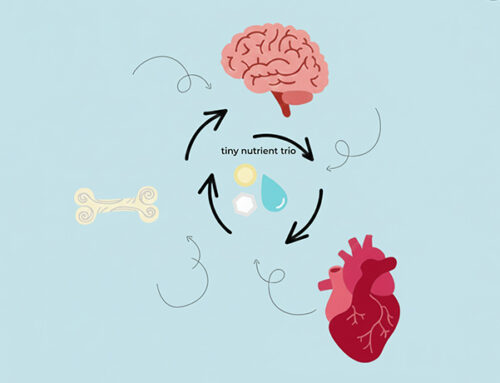Primary sclerosing cholangitis (PSC) and ulcerative colitis (UC) are long-term inflammation diseases. The thickening and formation of fibrous tissue of bile ducts characterizes primary sclerosing cholangitis. Ulcerative colitis is an inflammatory bowel disease affecting the lining of the large intestine. So, what do they have in common? They are both characterized by low levels of bacterial diversity.
Primary Sclerosing Cholangitis (PSC) is a rare, chronic liver disease characterized by inflammation and subsequent scarring of the bile ducts. At the same time, Ulcerative Colitis (UC) pertains to an inflammatory bowel disease causing long-lasting inflammation in the innermost lining of the colon and rectum. Both conditions, under the scrutiny of modern research, have exhibited links to the gut microbiome.
The Significance of Bacterial Diversity in the Human Gut
Bacterial diversity within the gut is a marvel of nature, crucial for maintaining optimal health. Our gut teems with trillions of microbes, orchestrating the rhythm of life within, and its richness or paucity can influence a host of health outcomes. High levels of diversity, for instance, may be linked to obesity, diabetes, and other health problems, while low diversity could spell trouble for immune responses and inflammation control.
The Role of Gut Microbiota in Health and Disease
The gut’s microbiome is a bustling metropolis, home to myriad bacteria species that interact and coexist. Their presence isn’t a coincidence; they play vital roles in digesting foods, synthesizing essential vitamins, and warding off pathogens. A disturbance in this delicate ecosystem due to factors like antibiotics or diet changes can catalyze numerous health issues.
Relationship Between Gut Health and Systemic Diseases
The gut, often termed the body’s “second brain,” is not just responsible for digestion. Diseases like irritable bowel syndrome, Crohn’s disease, and even diabetes are associated with gut microbiota changes. Some studies suggest that gut dysbiosis, or microbial imbalance, might precede the onset of such conditions.
Understanding Primary Sclerosing Cholangitis
The exact cause of PSC remains elusive. However, genetics, immune system reactions, and environmental risk factors might interplay in its development. Symptoms, albeit subtle initially, may include fatigue, itching, and jaundice. Ongoing research hints at the possible role of gut bacteria in influencing PSC’s progression.
Current Theories on the Relationship Between PSC and Gut Health
Recent studies spotlight the gut-liver axis, suggesting that a perturbed microbiome may directly impact liver health, contributing to conditions like PSC. For example, alterations in specific bacterial metabolites could potentially stimulate harmful immune responses in the liver.
Ulcerative Colitis: More Than Just a Digestive Disorder
UC predominantly affects the colon, leading to symptoms like diarrhea, rectal bleeding, and abdominal pain. Several triggers, including genetics, immune system malfunction, and environmental factors, are believed to contribute to its onset. Yet, a growing body of evidence pivots towards the gut microbiome’s role in UC’s pathogenesis.

The Connection Between UC and the Body’s Immune Response
UC isn’t merely an inflammatory response; it’s a complex dance between the body’s immune cells and the gut’s microbial community. An aberrant immune reaction to certain microbes in genetically predisposed individuals could initiate and perpetuate UC’s inflammatory cascade.
The Intersection of PSC and UC
A significant proportion of PSC patients also suffer from UC. This intriguing overlap has prompted researchers to delve deeper, with some data suggesting shared genetic susceptibilities and mutual environmental triggers.
Potential Reasons for the Link Between These Two Conditions
Could the gut be the common denominator? Emerging findings hint at microbial community changes common to both conditions. Dysbiosis, either as a cause or consequence, could be the bridge linking PSC and UC.
Bacterial Diversity: Why It Matters
Diversity in the gut isn’t about mere numbers but the balance. Each bacterium plays a role, with some aiding digestion, others synthesizing vitamins, and many maintaining gut integrity. A shift in this balance can lead to a domino effect, disrupting gut functions and overall health.
Potential Dangers of Low Bacterial Diversity
A decline in gut diversity can sound alarm bells for health. Low bacterial diversity has been associated with inflammatory disorders and metabolic diseases. For instance, reduced diversity can increase infection susceptibility, elevate inflammation, and even modulate metabolic pathways.
Current Research on Bacterial Diversity, PSC, and UC
Cutting-edge research continually unravels the intricate relationships between bacterial diversity and diseases like PSC and UC. Many studies now spotlight the significant differences in the gut microbial composition of patients with these conditions compared to healthy controls.
Potential Therapeutic Implications of These Findings
Could restoring bacterial balance offer a ray of hope for patients? The potential use of probiotics, prebiotics, and fecal transplants is being explored as therapeutic strategies. Their role in altering the gut milieu and, by extension, disease trajectories is a realm of immense promise.
A study has found that multiple identifiable bacteria species were overly abundant in PSC and UC. Rothia, Enterococcus, Streptococcus, and Veillonella were all overpopulated, while Adlercreutzia quolifaciens and Prevotella copri were both depleted. UC, in particular, found lowered levels of Akkermansia muciniphila, Butyricicoccus pullicaecorum, and Clostridium colinum. Determining which inflammatory bowel disease phenotype is being expressed based on bacterial taxa is possible. This further shows how the human microbiome and its diversity is connected to human health. UC and PSC are just more examples of how the microbiome can play into a disease.
Future Perspectives and the Potential for Therapeutic Interventions
Harnessing the gut’s microbial might could revolutionize treatments for PSC and UC. Probiotics, live beneficial bacteria, are promising in clinical trials, with certain strains exhibiting the potential to modulate inflammatory responses.
Ongoing Research and the Importance of Patient Awareness
While the gut microbiome offers a promising therapeutic frontier, more rigorous research is paramount. Patients and clinicians must be apprised of the latest findings, ensuring that therapies are evidence-based.
Conclusion
The intricate web of connections between bacterial diversity and systemic conditions like PSC and UC underscores the importance of understanding our internal microbial universe. As science delves deeper, a holistic approach to health that acknowledges the mighty microbiome becomes more crucial.
FAQs
How common is PSC in the general population?
PSC is a rare condition affecting a small percentage of the population. Its prevalence varies across regions, but its co-occurrence with conditions like UC has been documented.
Are there other conditions linked to low bacterial diversity besides PSC and UC?
Yes, low bacterial diversity has also been associated with conditions like irritable bowel syndrome, Crohn’s disease, and certain metabolic diseases.
What dietary factors might influence gut bacterial diversity?
Diet plays a significant role, with high-fiber diets promoting diversity and diets high in processed foods often reducing it. Consuming fermented foods can also influence microbial communities.
Bajer, L., Kverka, M., Kostovcik, M., Macinga, P., Dvorak, J., Stehlikova, Z., … Drastich, P. (2017). Distinct gut microbiota profiles in patients with primary sclerosing cholangitis and ulcerative colitis. World Journal of Gastroenterology, 23(25), 4548–4558.




